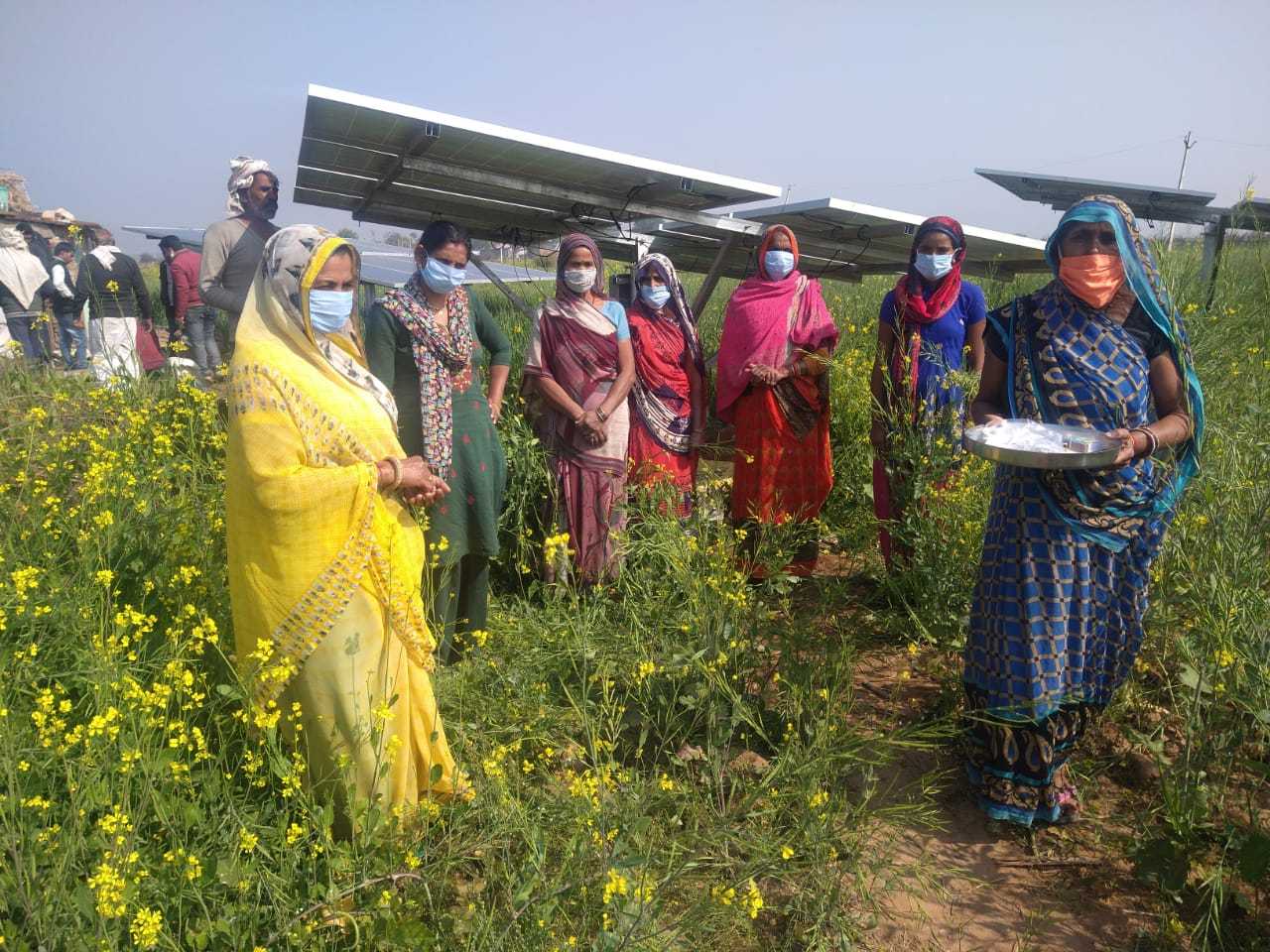
Our renewable energy interventions are aligned with #SDG7- Affordable and Clean Energy wherein our main focus is on building knowledge of farmers around how to harness renewable energy sources. Our major interventions are facilitating solar-based irrigation pumps and solar lights to help kids and families during night hours and also street lights in remote villages.
At Manjari Foundation, we are committed to creating a sustainable future for rural communities. With a focus on reducing carbon footprint and promoting eco-friendly solutions, we have launched Renewable Energy initiatives in Banda and Sitarganj. Our mission is to empower villages with clean, renewable energy and mitigate the impact of climate change.
To reduce carbon footprint and ensure optimum power energy to the rural communities, Manjari Foundation along with the support of HDFC Bank’s Focus Rural Development Programme Parivartan promoting chemical free farming practices. The project will also ensure clean and renewable energy solutions for 70 villages and help to attain sustainable development. In addition, the villagers will be sensitised by forming a beneficiary group to engage the gram panchayat and local government bodies for maintaining the facility. 700 Solar street lights have been installed and
Manjari Foundation has recently started working with marginalized communities in Block Badokhar Khurd, District Banda, facilitating Producer groups, development committees and Jal Samitis. Community projects developed around existing social structures are more likely to sustain. Recently Manjari has set up 27 Community-based solar irrigation systems. The strategy is to promote chemical free farming by providing irrigation access in order to increase the livelihood of the farmers. Jal Samiti has has been formed to manage this solar irrigation systems. The main objective of these systems is to irrigate up to 30-35 acres of land from each pump installed. The members of Jal Samiti's varies depending on the land holding size. Collectively, 236 farmers are benefitting from the solar system, harnessing its power to enhance their agricultural activities. Simultaneously, their efforts are irrigating a vast expanse of 860 acres of land, fostering chemical free farming practices and contributing to agricultural productivity. Installing agricultural solar shared pumps had a transformative impact on farmers, communities, and the environment. Economically, these pumps reduced reliance on costly diesel or grid electricity, lowering operational expenses and making irrigation more affordable, especially for smallholder farmers. By improving access to reliable water sources, they enhanced agricultural productivity, leading to higher yields and more stable incomes. Socially, shared pumps fostered community cooperation, as farmers collaborated to manage and maintain the system. They also reduced the physical burden on women and marginalized farmers who often struggled with manual irrigation. Environmentally, solar-powered pumps replaced fossil fuel-driven alternatives, cutting carbon emissions and promoting sustainable water use. By ensuring consistent irrigation, these systems enabled multiple cropping cycles, improved produce quality, and supported the diversification of crops, ultimately contributing to an increase in the livelihood of farmers.
Estimating the daily power production for each 1 kW of solar panels involves considering factors such as solar panel efficiency, peak sun hours, and the number of hours of sunlight. 1 kW of solar Panel can generate 4 Units per day throughout the year. Each Solar irrigation pump can generate 29 Units per day, comprising 205 Units per day. The efficiency of a Polycrystalline/mono solar panel depends on the efficiency, which varies from 15% to 17%. Throughout the year 27 Solar pump system collectively has the capacity of producing 2,85,795 units.
As per Carbon Emission baseline database for the Indian power sector by the Government of India Central electricity authority. It took 0.82 kg CO2/kWh to generate 1 unit of electricity and 0.76 kg CO2/kWh for 5 HP diesel pumps which again can generate 1 unit in Wh unit. Resulting in a reduction of CO2 emissions by 285.78 tons in the Solar pump. The programme will have a significant impact on the environment by reducing CO2 emissions in two phases by reducing CO2 emissions via Solar-based interventions and saving the other costs, which include the savings in electricity, cost and water rent cost for irrigation in agriculture throughout the year. The implementation of solar-based interventions, including solar irrigation pumps and solar street lights, has demonstrated a substantial reduction in CO2 emissions and significant cost savings. Overall, this program serves as a pivotal step towards sustainable development, illustrating the effectiveness of solar technologies in mitigating environmental impact and fostering economic resilience.

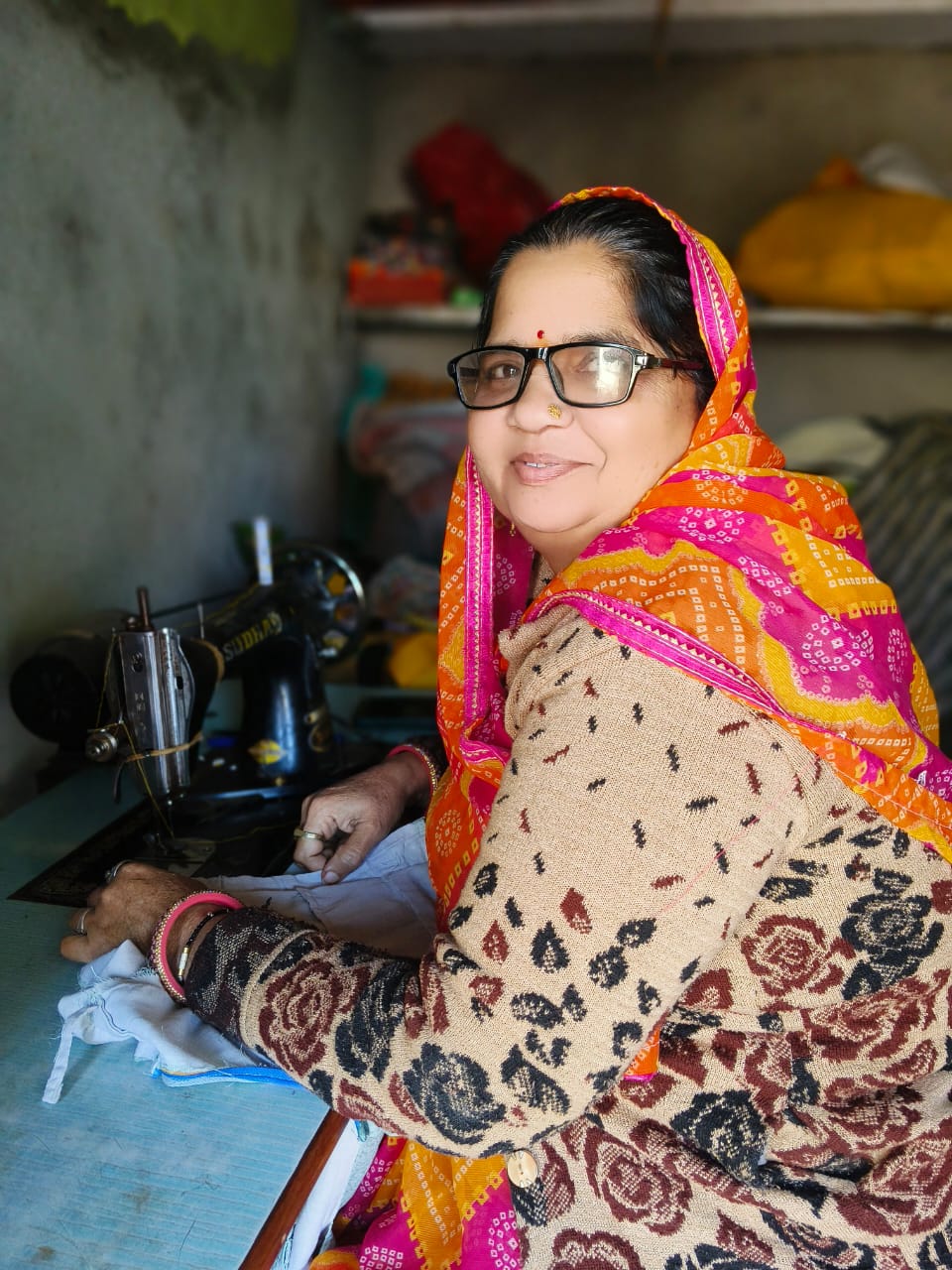
Sometimes, life unravels when we least expect it. For Mrs. Santosh Devi Kansara, that moment came with the sudden, quiet departure of her husband, the late Mr. Rameshchandra Kansara. In an instant, the world she....
Click Here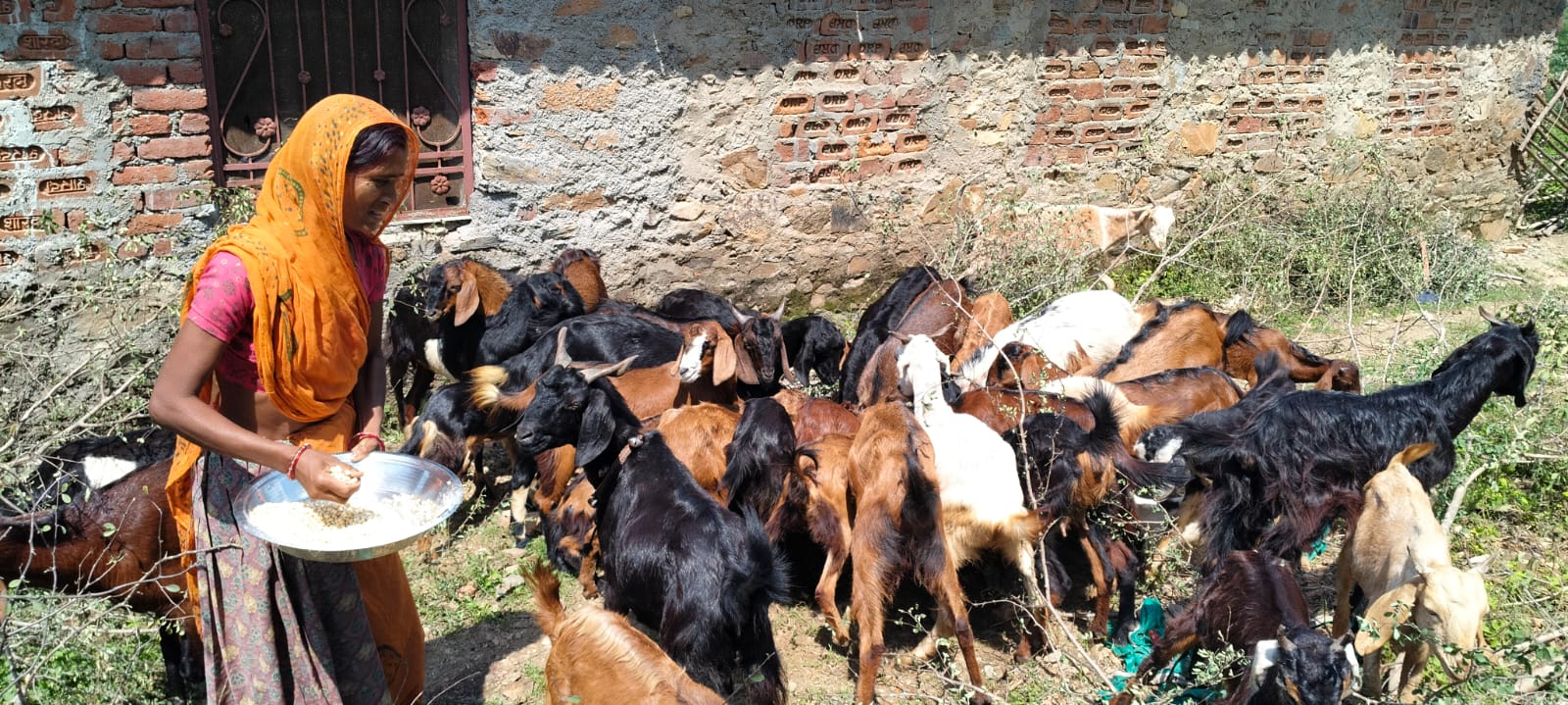
In a world where big dreams and small beginnings often collide, Mohini Didi's story stands out as a beacon of hope and determination....
Click Here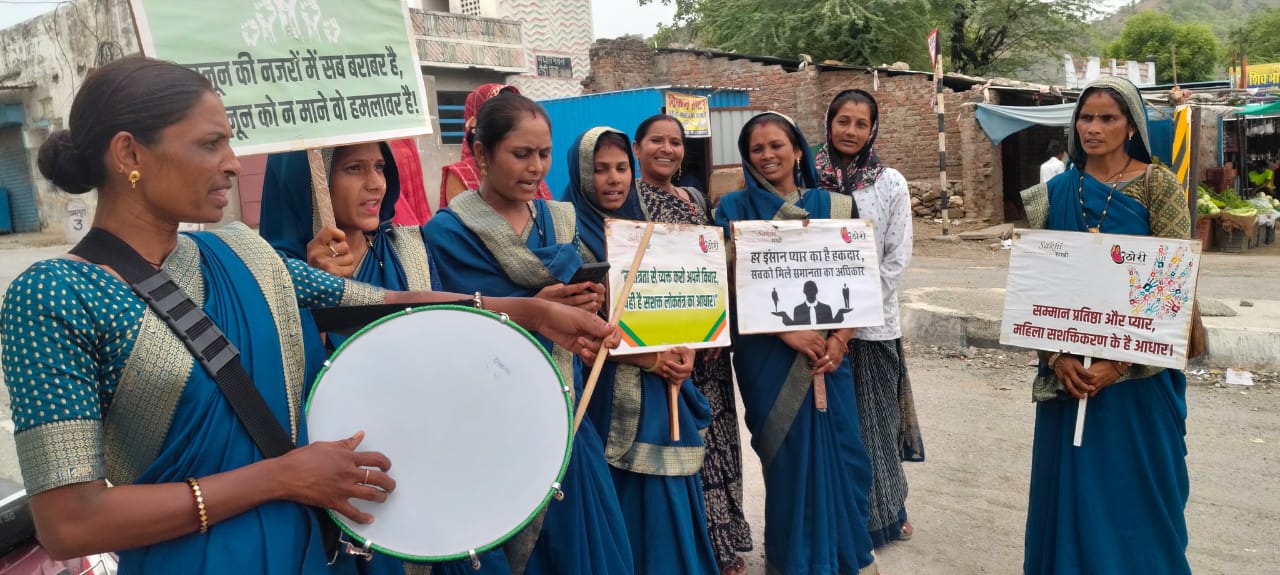
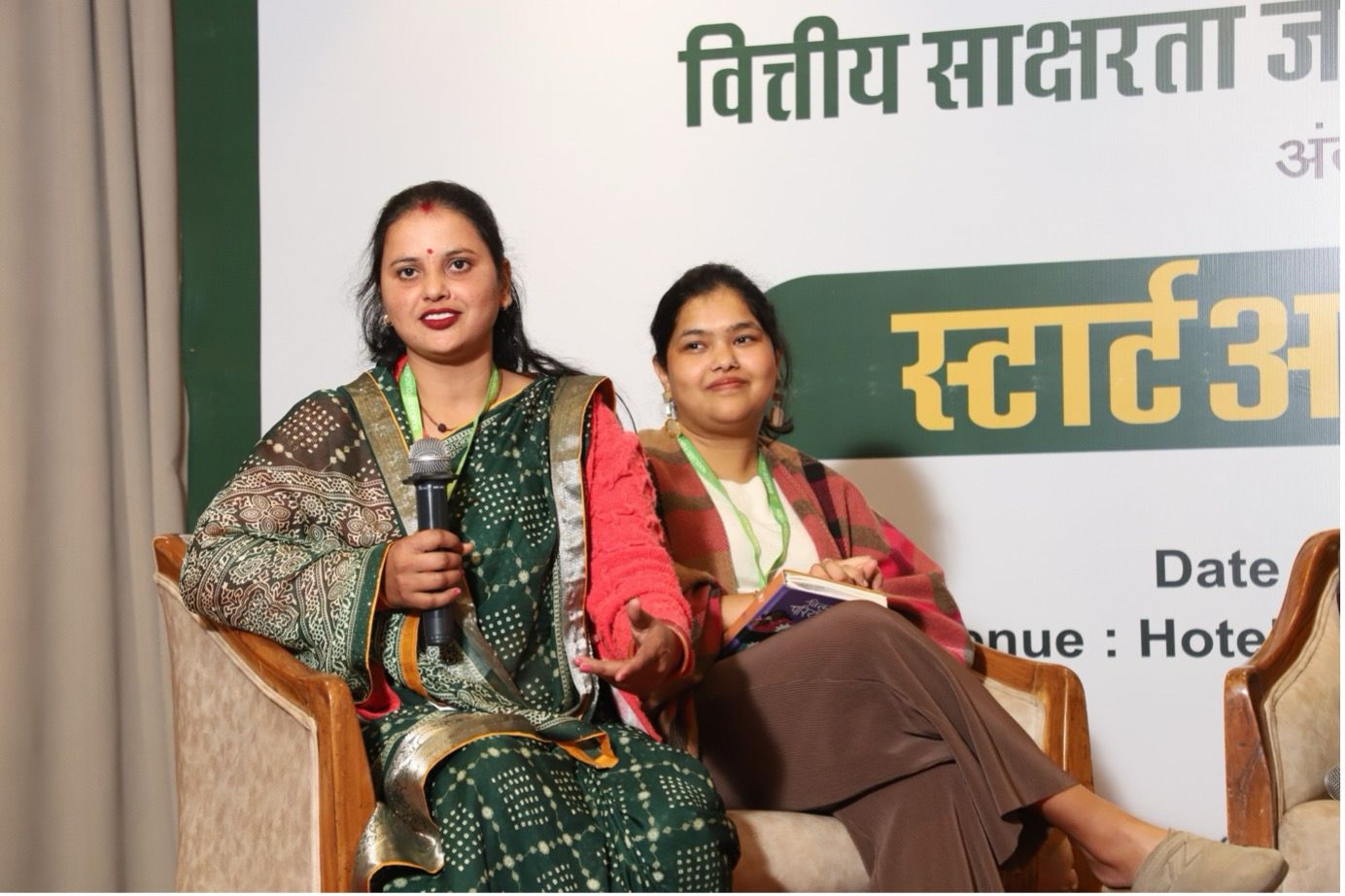
These small moments weave into a bigger story of empowerment, resilience, and hope. The Ripple Effect of Economic Independence. The UN Women Fund is one such catalyst.
Click Here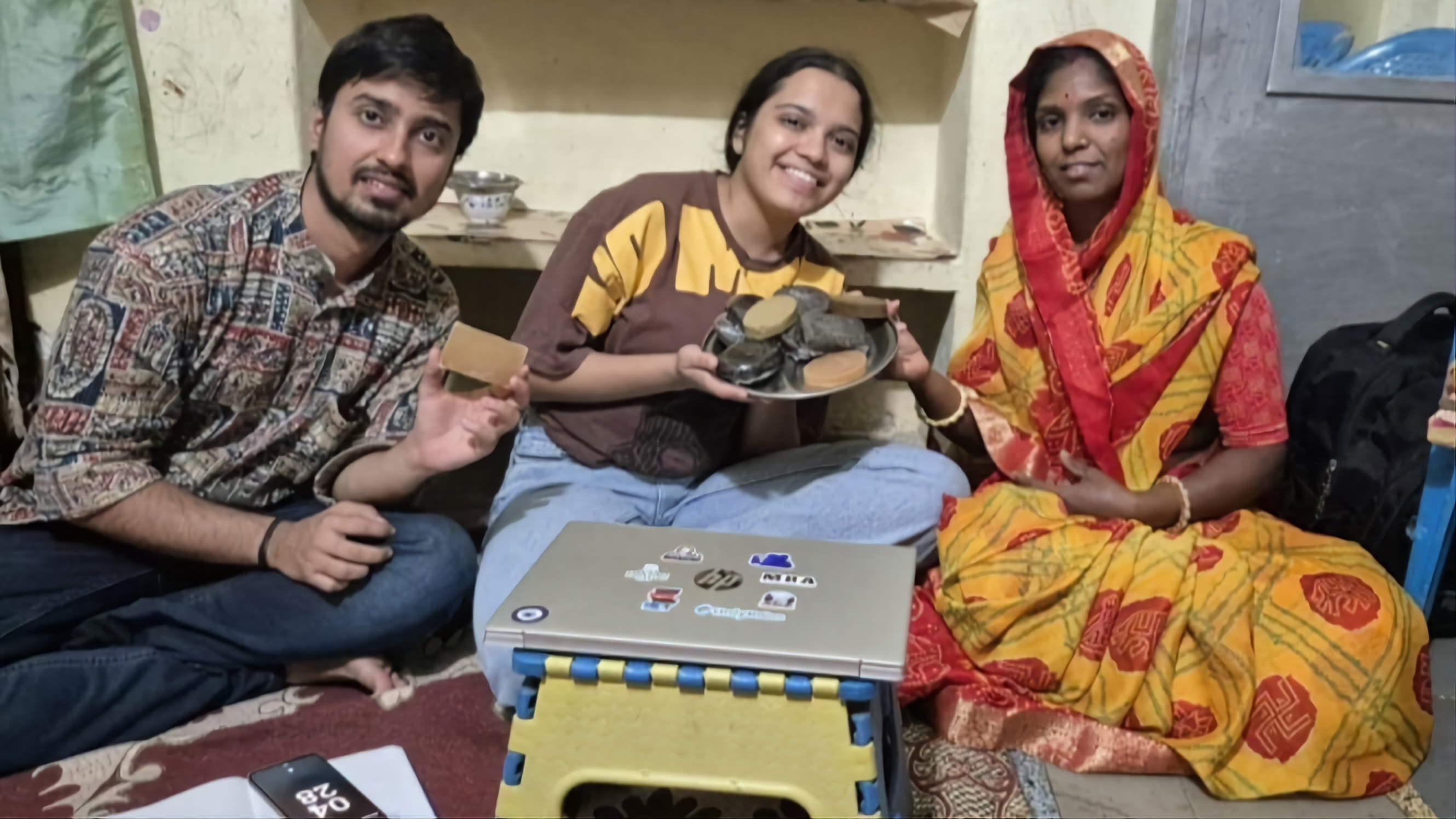
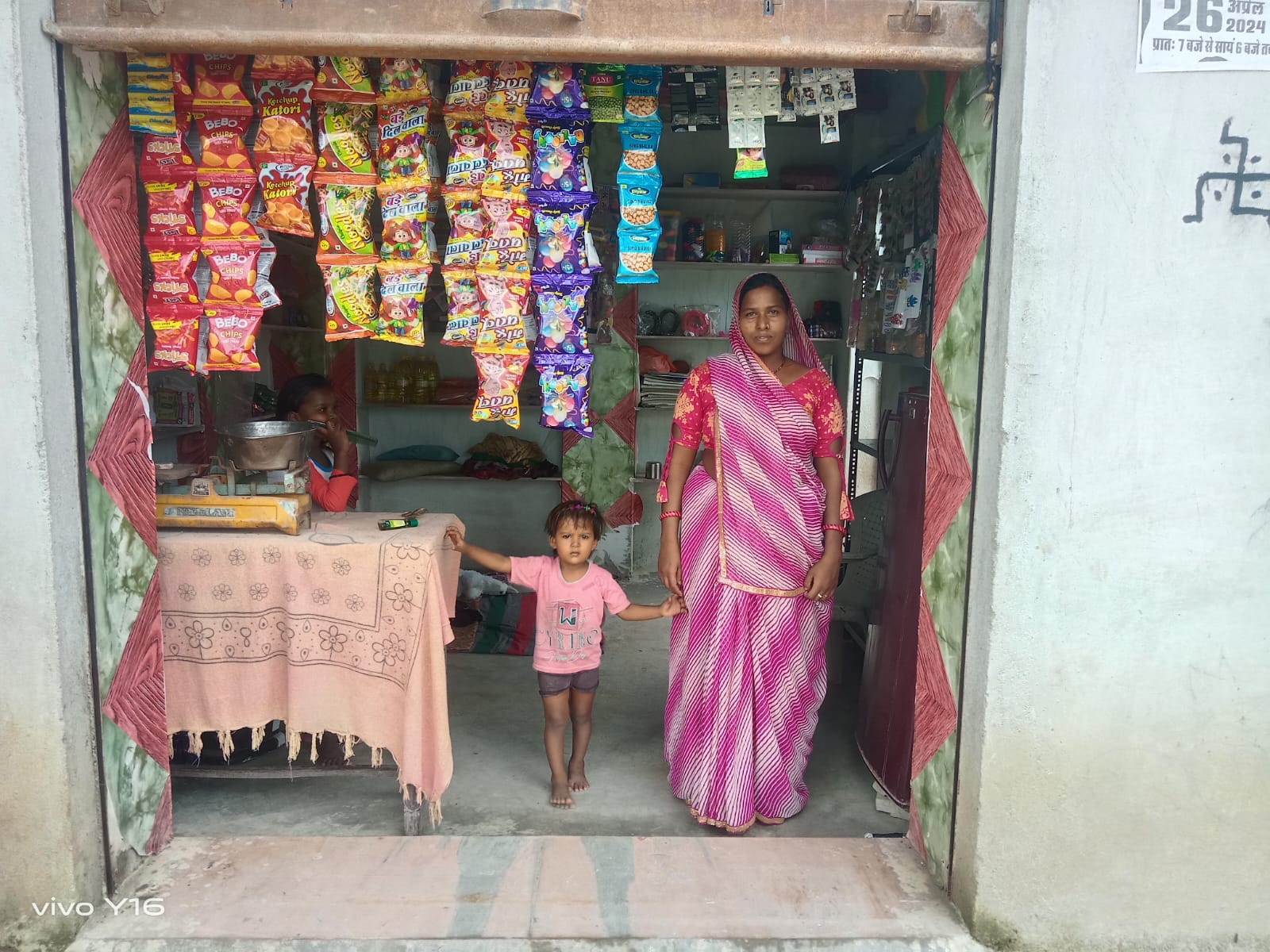
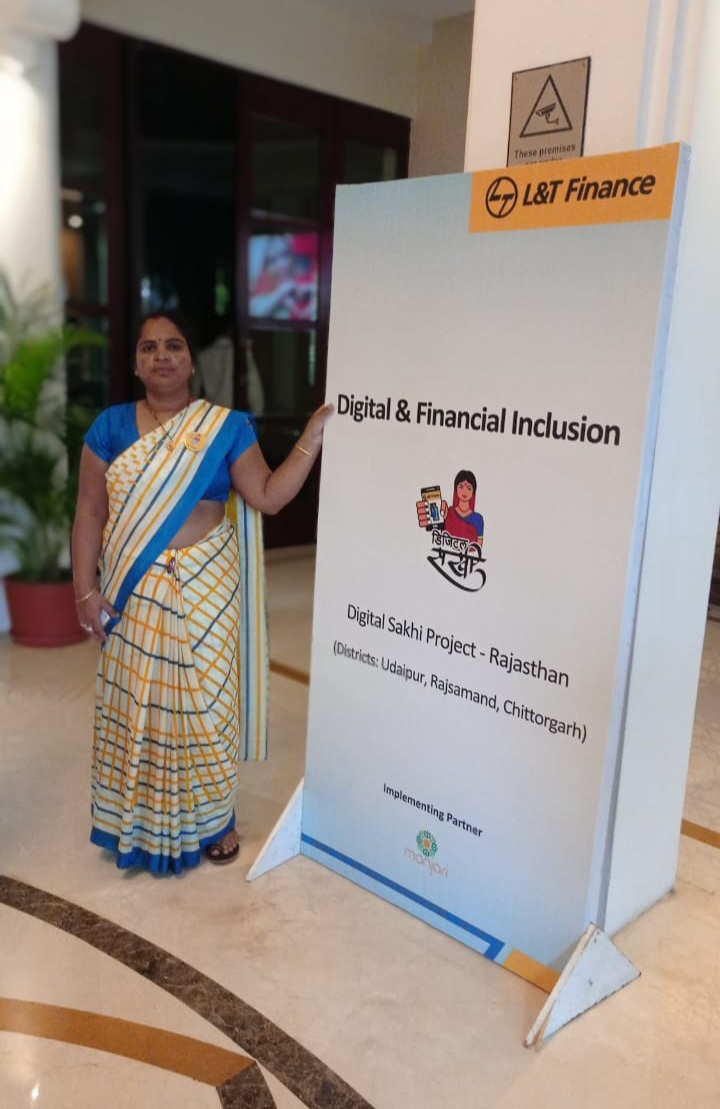
In the quiet village of Turkiyakala, Chittorgarh, a remarkable story unfolds—the journey of Chandrakala Khatik, a woman who transformed struggle into success. Born in 1988 into an educated family, she possessed a sharp mind....
Click Here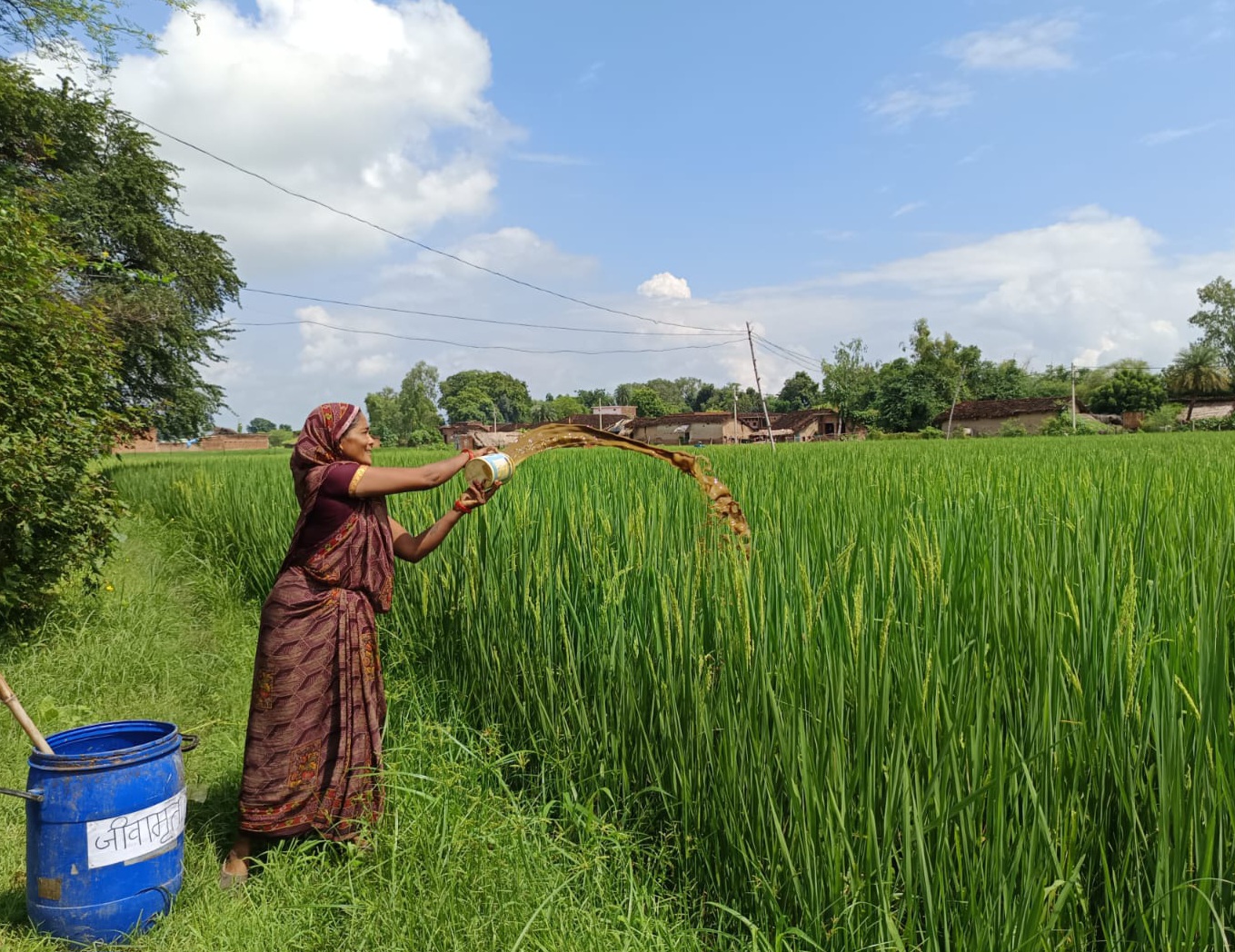
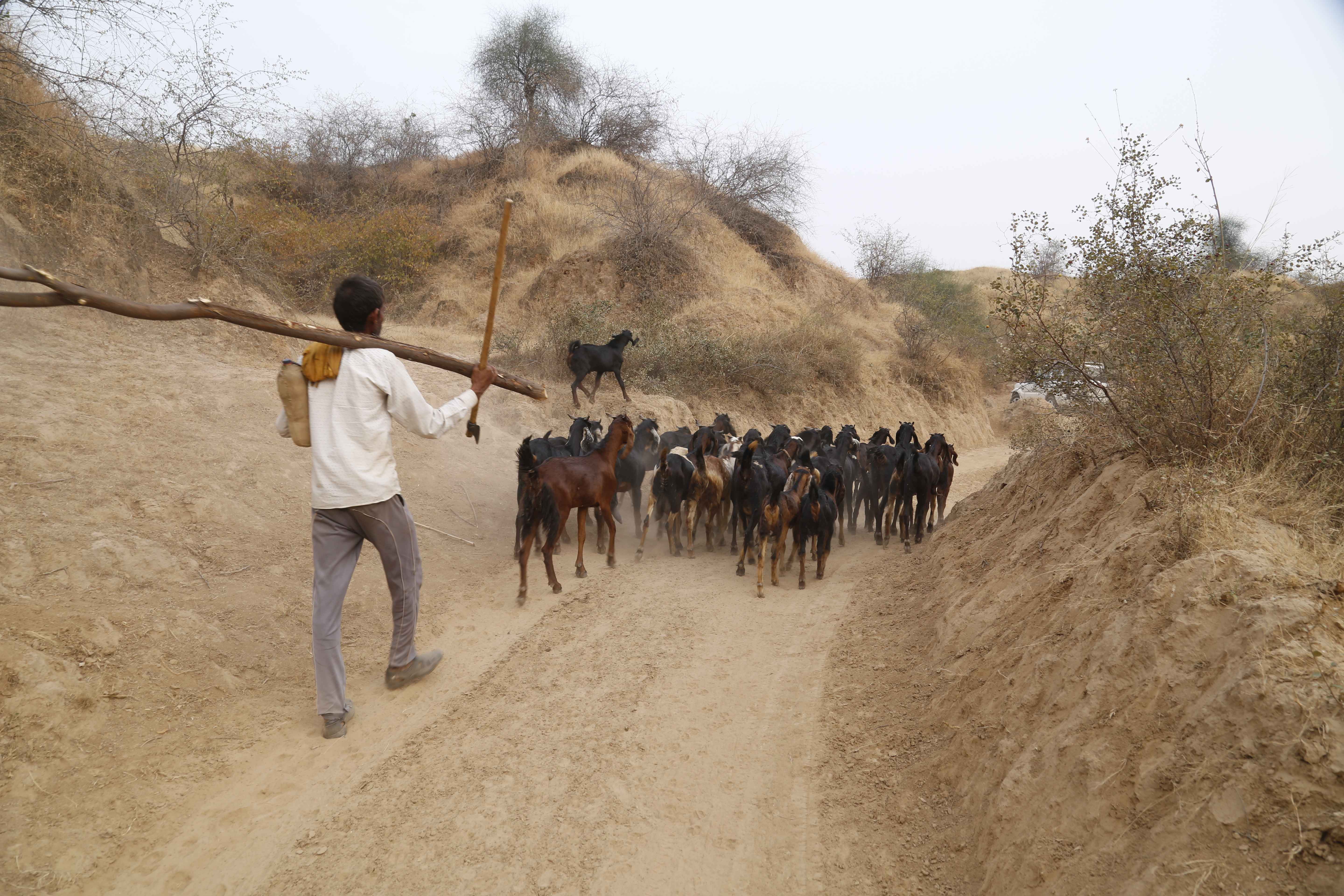

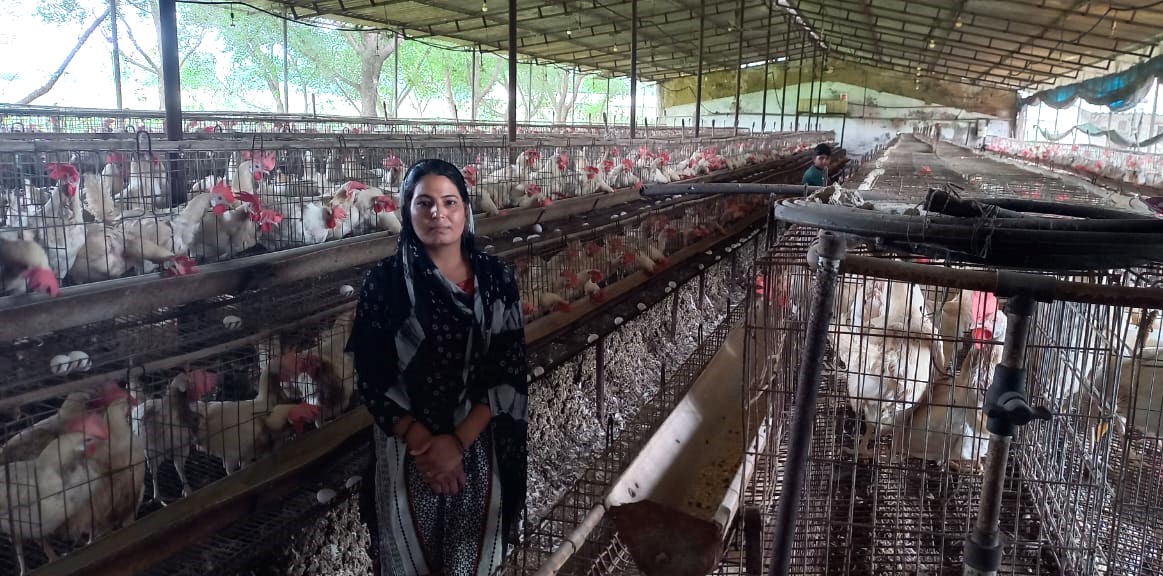
Shahnaj is an aspiring women member of Self Help Group in Gagwana village of Ajmer district in Rajasthan. The self help groups are being promoted by Manjari Foundation in Sakhi Project. After her marriage, she arrived here as a homemaker living with her husband, children and other family members.
Click Here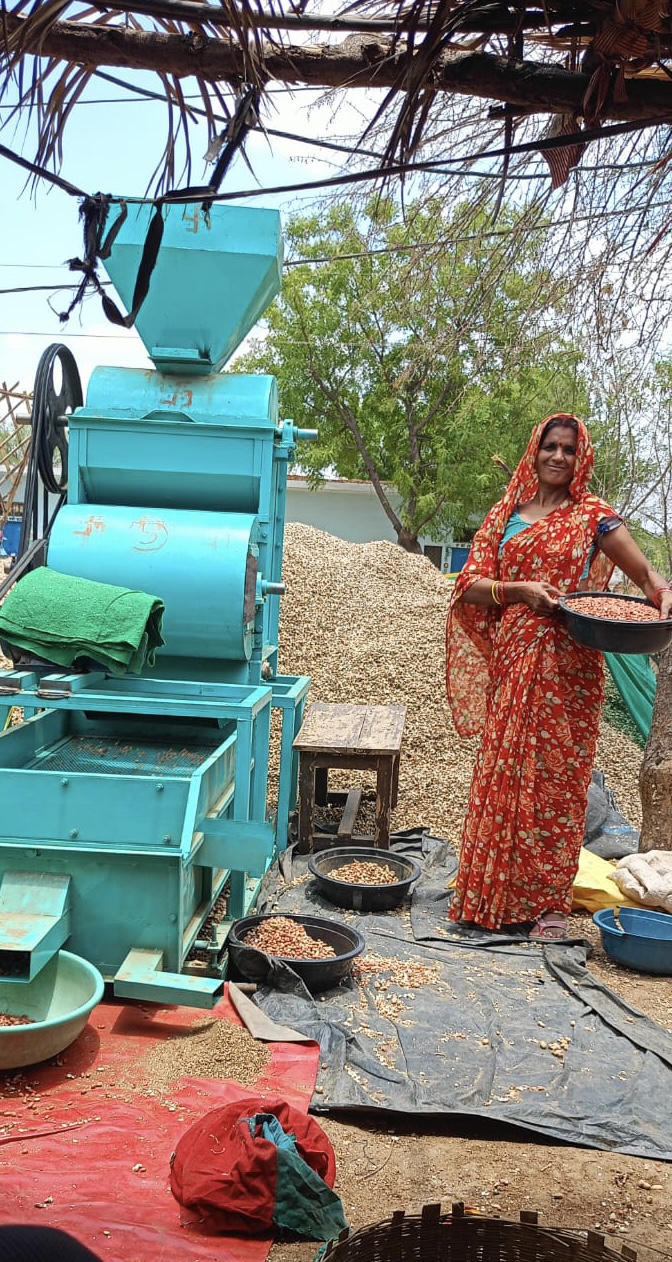
Ramkali, alongside her husband, toiled on their small piece of agricultural land. Life was manageable when it was just the two of them, but the arrival of three children brought new financial challenges.
Click Here
People often say, 'Dream, because dreams cost nothing.' Everyday in India, countless women are dreaming and making every possible effort to turn those dreams into reality.
Click Here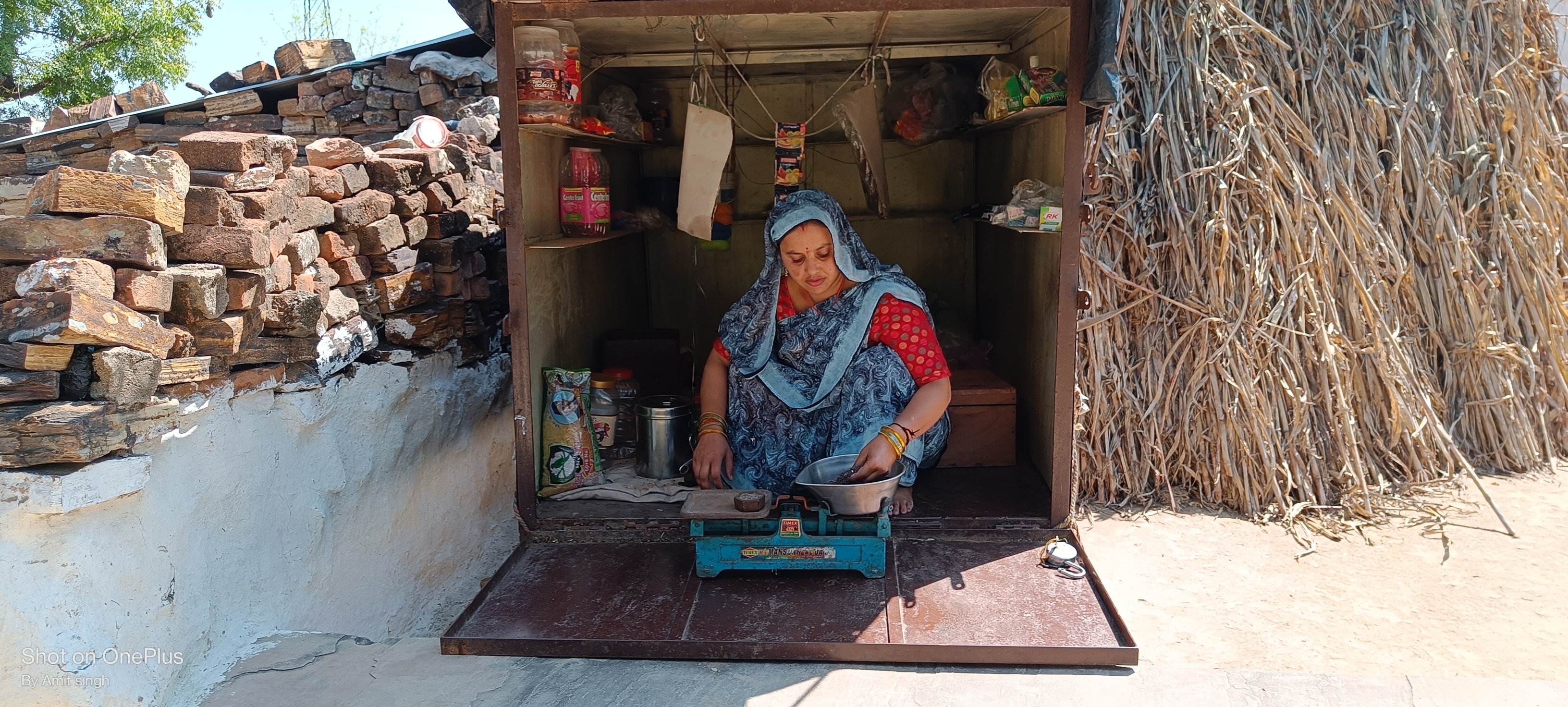
Rakhi Sharma's journey is a testament to the power of determination and the transformative impact of seizing opportunities
Click Here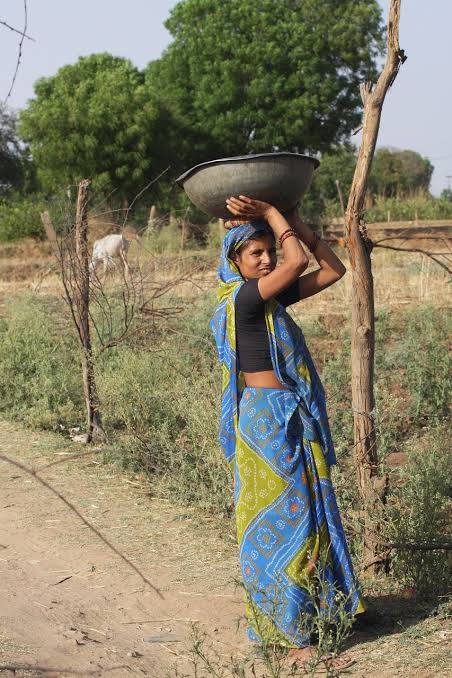
While India is known as an agrarian country, the struggles and hardships faced by many farming families often go unnoticed. Sunita's family, residing in the small village of Patoora in the Satna district of Madhya Pradesh....
Click Here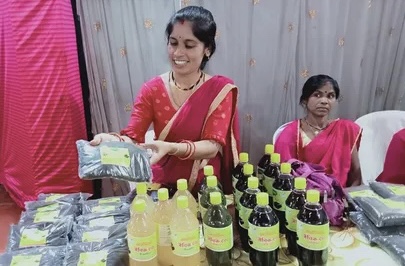
In India, one often witnesses a common occurrence in impoverished households. The insistence on marrying off the daughter is prevalent, treating the girl as if she is a burden. It's as if they eagerly await her turning 18, considering it a milestone for arranging her marriage. In some cases, the situation is so extreme that the girl is married,
Click Here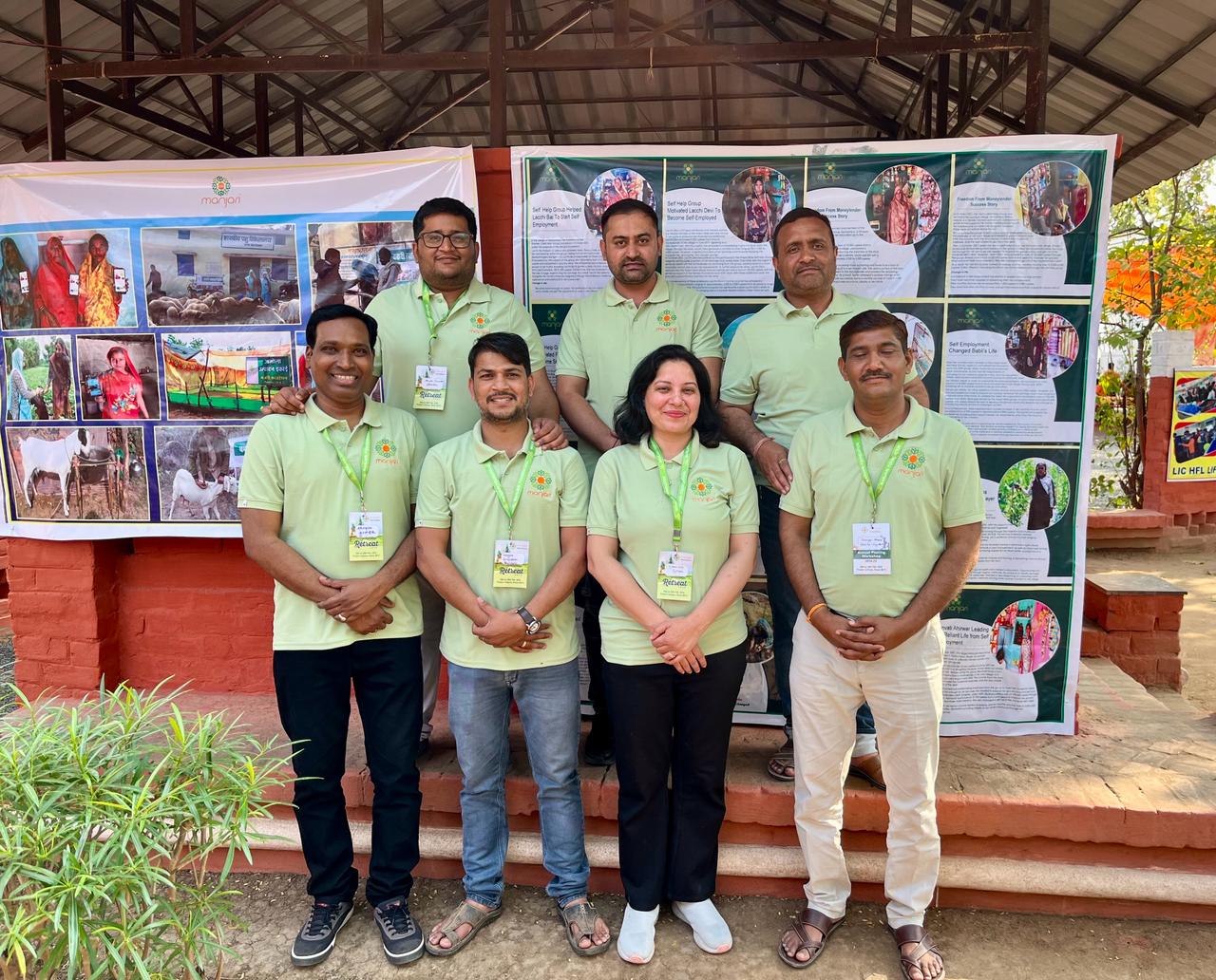
Ramesh Yadawar from Manjari pens down his experience of Annual Retreat.
Click Here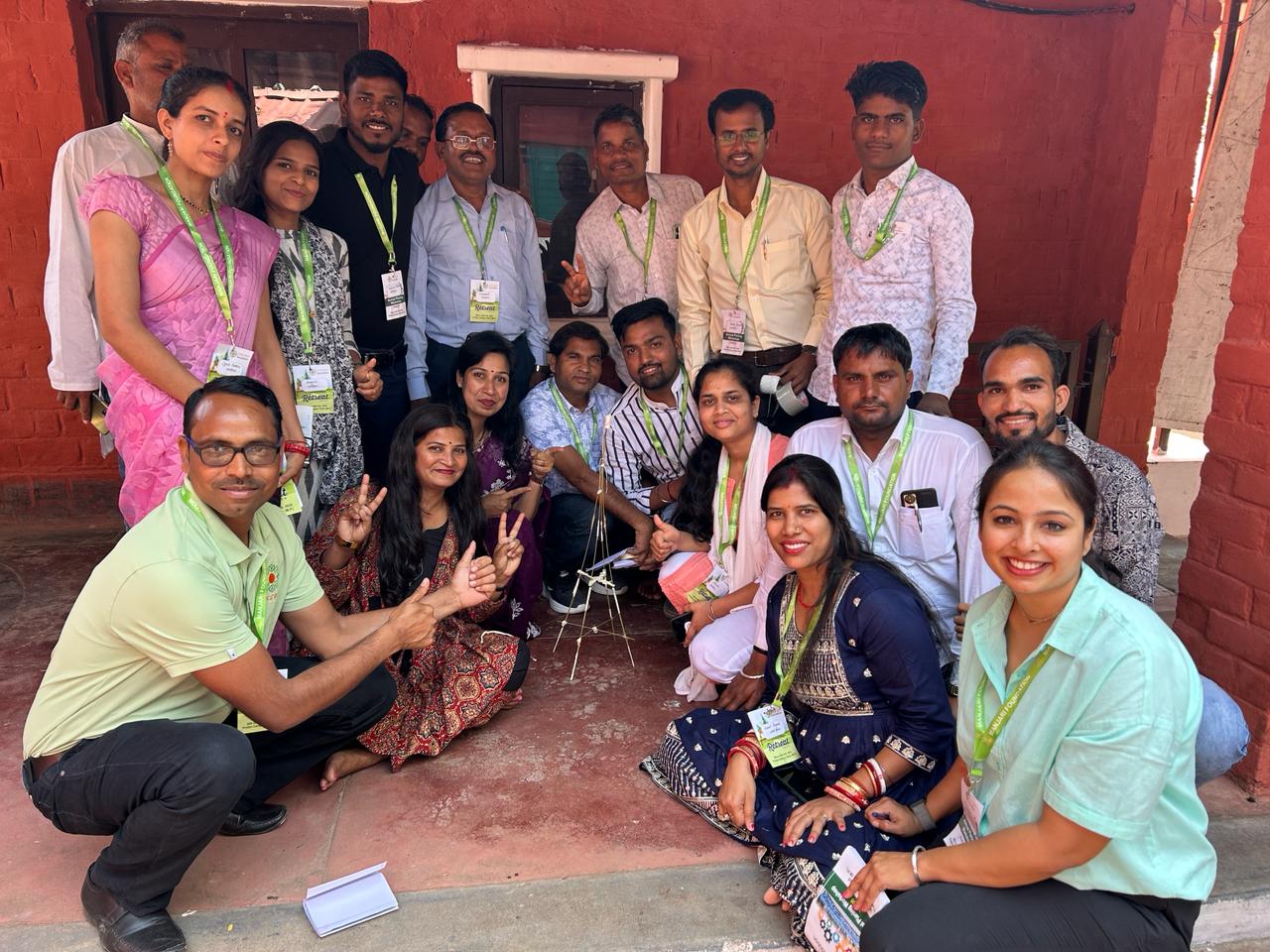
टीम मंजरी के विजय रावत और सुबोध गुप्ता द्वारा लिखा गया वार्षिक रिट्रीट का वृत्तांत।
Click Here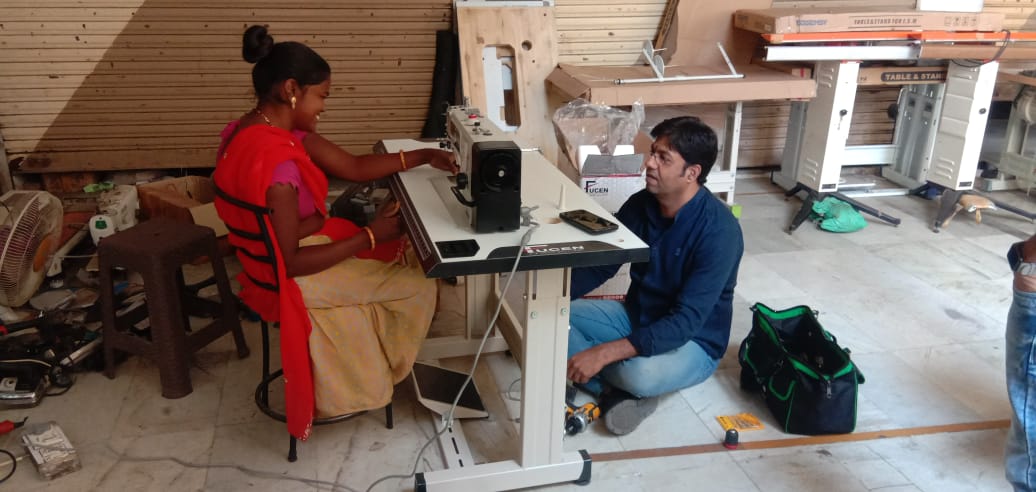
In the serene village of Guddali, nestled in the Kurabad block of Udaipur, resides a remarkable woman, Meera. From a young age, Meera has faced the challenges of physical disability with unwavering determination and resilience.
Click Here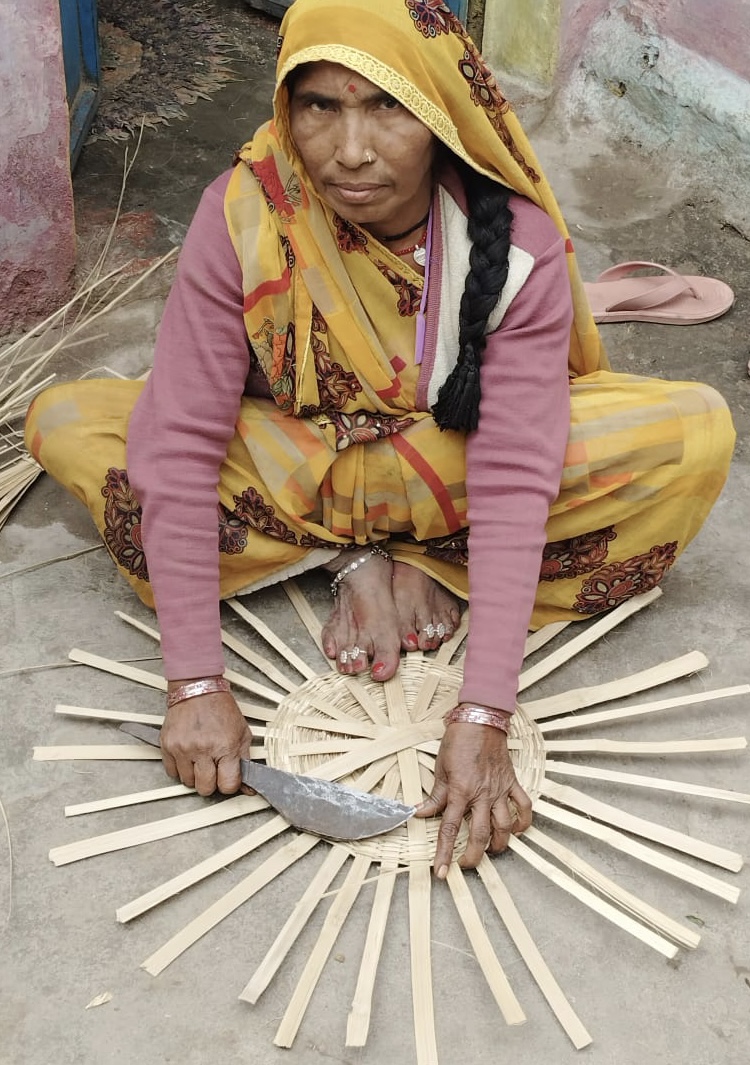
In the heart of Narayanpur, a village painted with the hues of tradition and aspirations, a remarkable journey unfolded through the Bagaj Mata Self-Help Group, facilitated by the Manjari Foundation in October 2021.
Click Here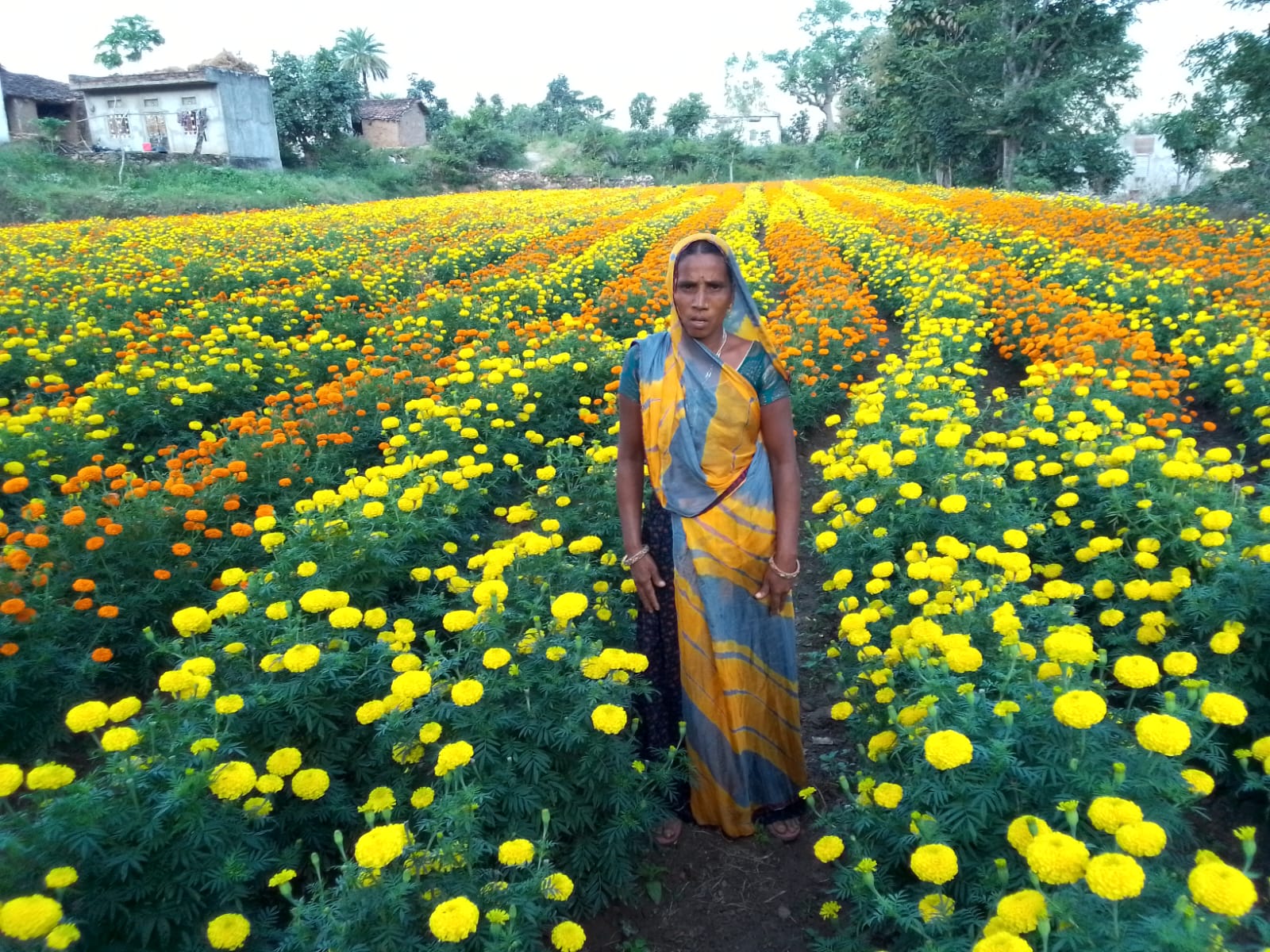
Kamla Bai's story is one of resilience, empowerment, and the blossoming of a remarkable entrepreneurial spirit.
Click Here
Madhu Khoiwal, a 55-year-old woman from Rajasthan's Chittorgarh, had a journey filled with challenges and empowerment. Growing up in a village where education for girls was not considered essential, she dropped out of school during the 5th standard.
Click Here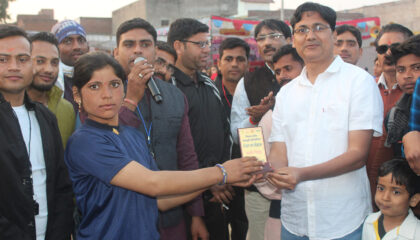
With the numerous risks and uncertainties we face today, social security is indispensable for poor and vulnerable families.
Click Here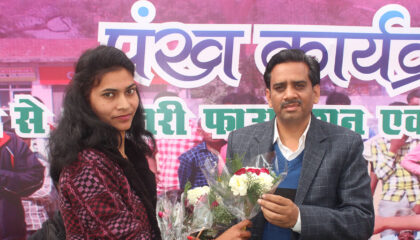
119 year-old Raviya belongs to a middle class family in Adampur village in Dholpur district. Her father Laxmi Narayan Lodhi is a farmer and mother Kanta is a housewife. She is the youngest of 4 siblings.
Click Here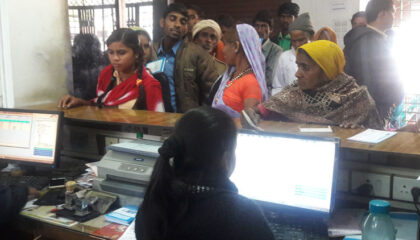
The Government has launched various schemes and programmes for the upliftment of the poor but impact...
Click Here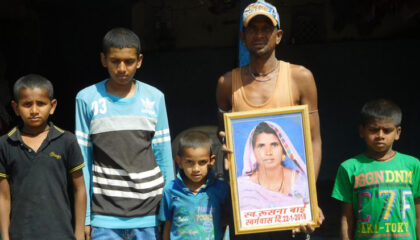
With the numerous risks and uncertainties we face today, social security is indispensable for poor and vulnerable families.
Click Here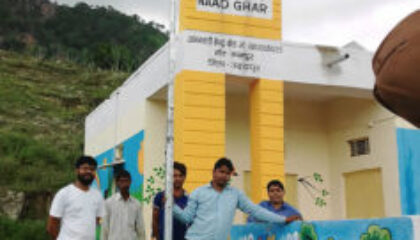
Electricity is the most basic that we take for granted. Even today, it is not easily available to many people in rural areas.
Click Here
Sushila Devi, a 28-year-old woman from Shivpura village, is a mother of the young boy. Tears roll down her cheeks when she narrates her story. She was very young when she got married.
Click Here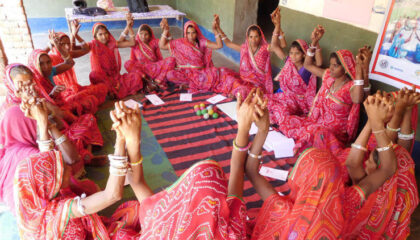
Rawa is a remote village situated in the difficult terrains of Girwa Tehsil. Most men in the village are daily wage labourers.
Click Here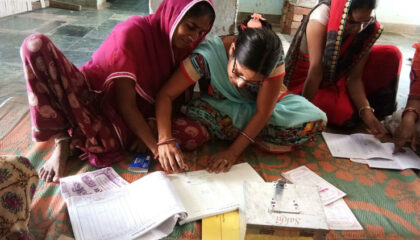
Four months ago, our Sakhi programme reached out to Narpat Ki Khedi, a small village with a conservative...
Click Here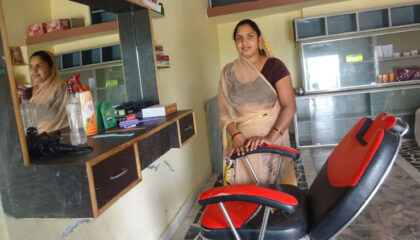
Despite making huge advances in development in our county, women today still face a number of hurdles due to gaping gender gap in the workforce. Only 29% of the women in our country end up joining the workforce..
Click Here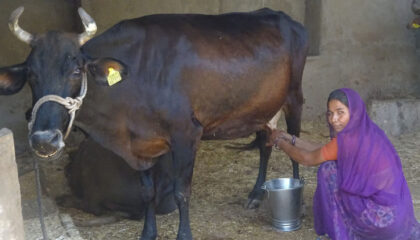
Mohini’s story goes to show that there is no limit to how much one can achieve with strong determination.
Click Here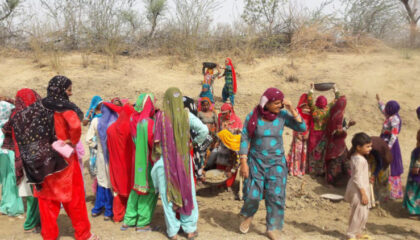
The Mahatma Gandhi National Rural Employment Guarantee Act (MGNREGA) is an initiative and social security measure of the government of India, aimed at providing guaranteed employment to rural people in an attept to reduce distress migration from villages.
Click Here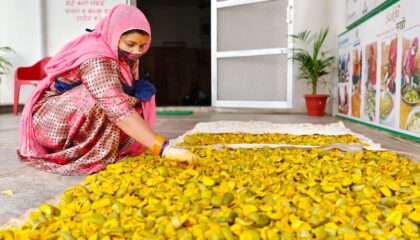
Gudiya Kanwar became a famous name in the pickle unit of Kayad (Ajmer) for a reason. She was a housewife...
Click Here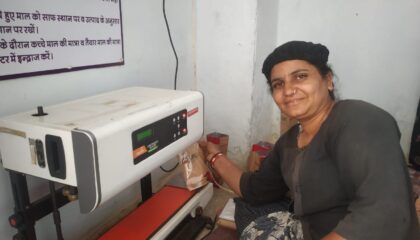
Radha Jaat is resident of Chittorgarh’s Monga Ka Khera hamlet. Her husband abandoned her a few years ago...
Click Here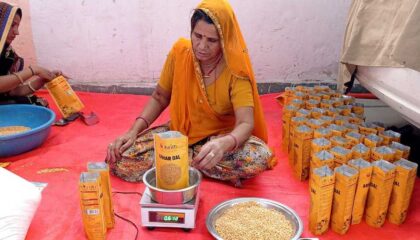
Kanchan Vaishav is a native of Bhilwara’s Agoocha Village. She is a 45-year-old woman, who has been working at the Pulses Unit in Agoocha since its inception. Her husband worked as a farmer, but now is confined to the home due to poor health.
Click Here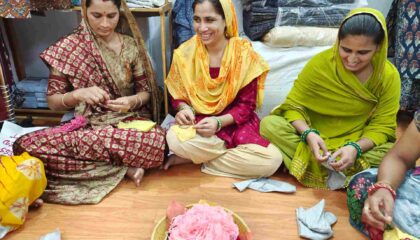
Jamna Khatik is a resident of village Putholi, Chittorgarh. She started working at the textile centre 2 years ago...
Click Here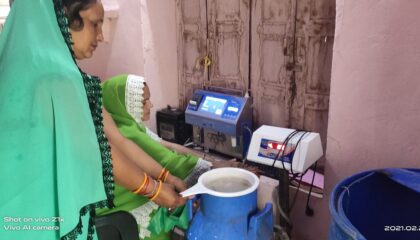
Sadhana lives in a remote village named Maloni Pawar, 46km away from Dholpur, Rajasthan. She is an active member of an SHG in her village.
Click Here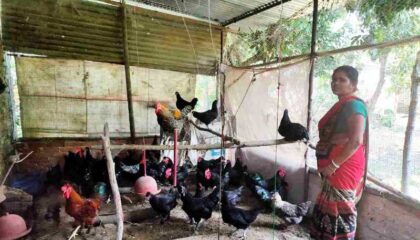
“She is a warrior capable of slaying demons. She is a pioneer capable of choosing her own path. She is a trailblazer capable of achieving new horizons. Just give her some time and see her bedazzle the world.” ― Avijeet Das
Click Here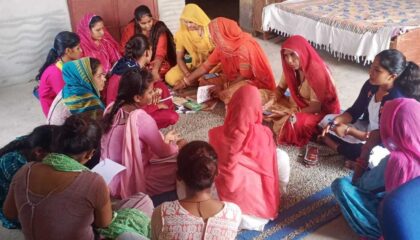
“Ashayein” is a Hindi word which means “Hope”. Those who manage to have hope regardless of their hardship, are the ones who succeed with flying colours.
Click Here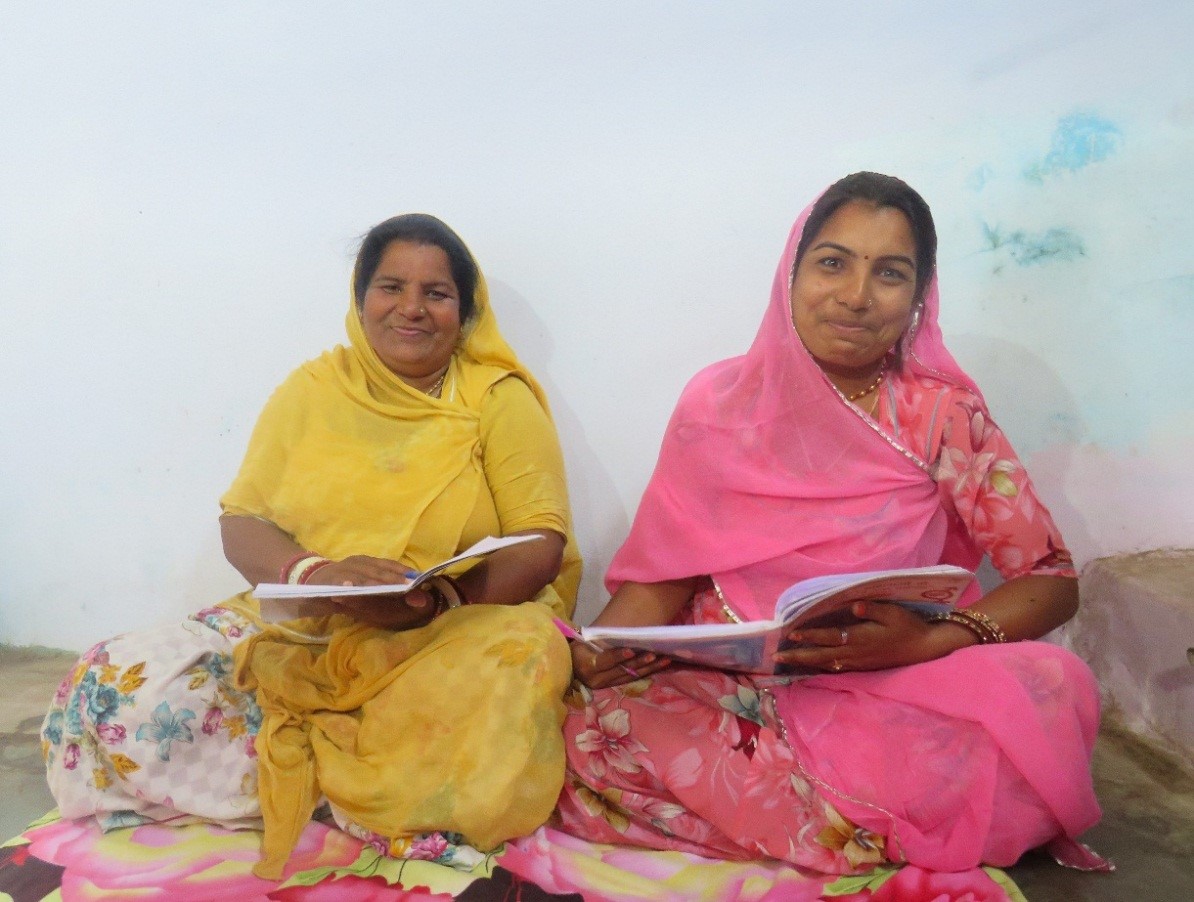
The title aptly captures the story of Mamta Solanki and Meena Kanwar, residents of Kishanganj village in the Baran district of Rajasthan. Mamta, 24 years old, is the daughter of Meena Kanwar, 43 years old. Mamta got married to Tanwar Singh five years ago but has since separated from him.
Click Here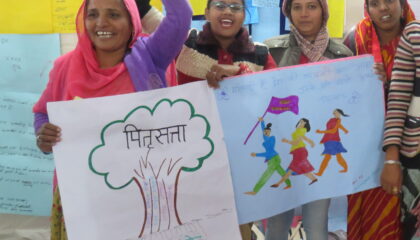
As cliché as it sounds, “change is constant”. There are few people who are able to bring change at the grass-root level, and 45 year-old Sangeeta Kunwar is one such women. Hailing from Rolakheda village of Chittorgarh district of Rajasthan, Sangeeta earned recognition in her village for the contribution she made.
Click Here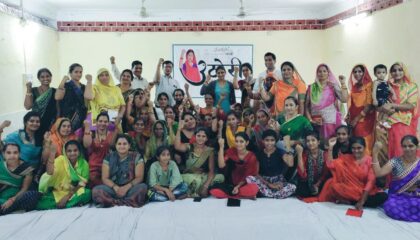
“Koshish” is a Hindi word that means “to try”. It’s the attitude that ultimately makes all the difference between success and failure.
Click Here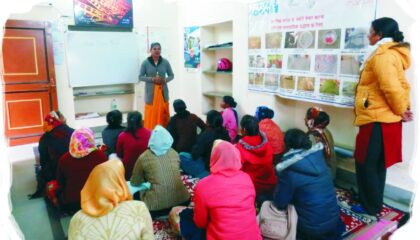
The story of 21 year old Paras Salvi speaks for itself. A resident of Rupakhedi village in Chittorgarh district of Rajasthan...
Click Here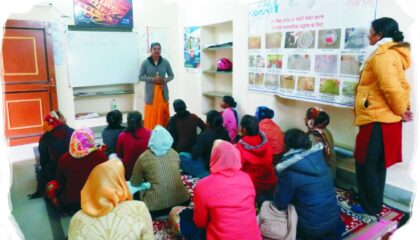
Sometimes life gives us a second chance. It’s left upto us to seize the moment and make the most of opportunities that come our way.
Click Here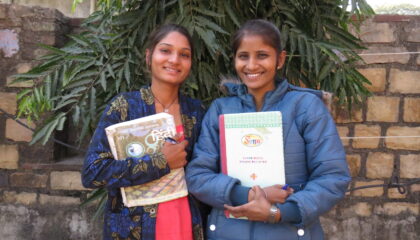
“SCHOOL CHALI MAIN” in Hindi translates to mean “I am going to school”. The sentence signifies the happiness of Vimla Salvi, a 27 year old from Rupakhedi Village in Chittorgarh District of Rajasthan.
Click Here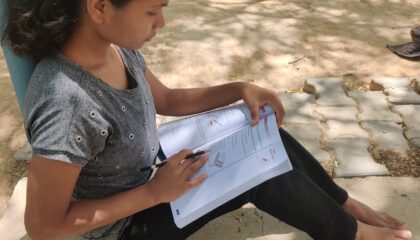
The Second Chance Programme implemented by Manjari Foundation and supported by Pradan and UN Women has set the ball rolling for several women like Promilla Karmakar.
Click Here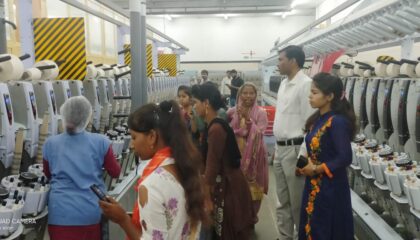
“Sui-Dhaaga” is a popularly used Hindi word, which means needle and thread. Sewing as an activity has ensured employment for millions of people across the globe.
Click Here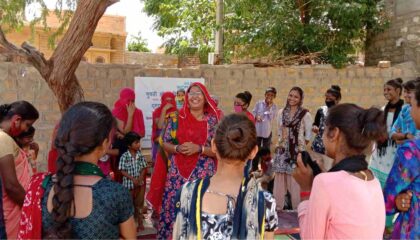
“STRONG STRONGER STRONGEST” represents a transition in the life of a rural woman...
Click Here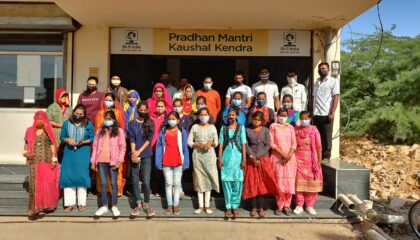
The title “STRONG STRONGER STRONGEST” represents a transition in the life of a rural woman that is straddled with hardship.
Click Here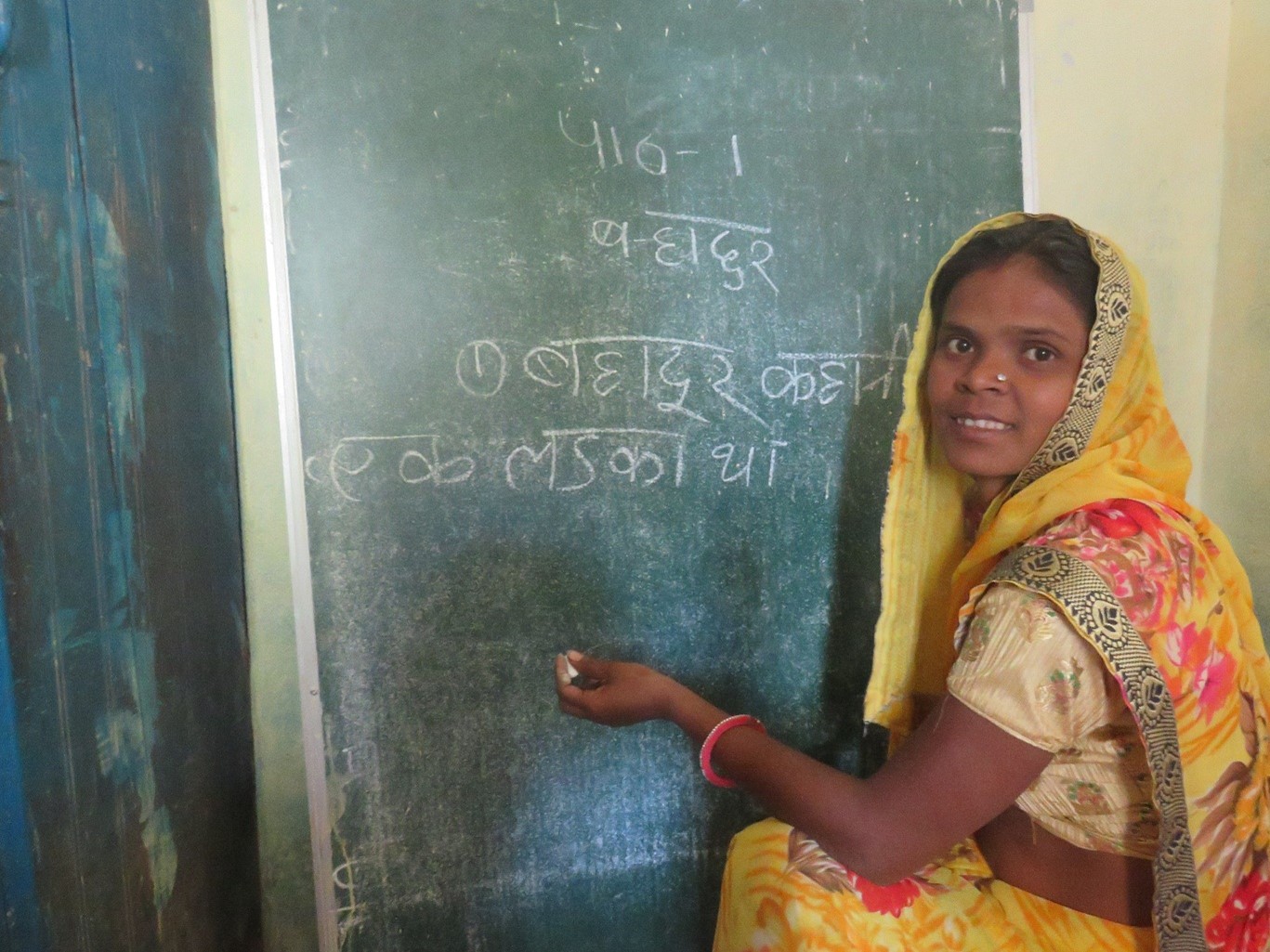
There have been numerous instances where minor efforts have resulted in larger results. We plant trees in gardens, on property, and elsewhere these days in the hope that global warming challenges can be handled in the future.
Click HereOur Testimonials
'Manjari’ literally translates to “seed of Tulsi”, a sacred Indian plant. When women mobilise themselves to form institutions, they are empowered to sow their own ‘seeds of change’.
"Development of Corporate Citizenship (DoCC), the social internship program of SPJIMR has been collaborating with Manjari Foundation since 2015. This has been fruitful relationship for us. I want to emphasise the four following themes. First the internships give our students a different idea of leadership which also gives them a sense of requirements for the future and adds to the ethics of sociological content. The participants acquire a notion of innovation- both social and technical which gives them a systemic view of the society. Such an empirical location gives them both a sense of limits and possibilities of what they can do. Environmental consciousness and gender sensitivity constitute two critical parts of social responsibility as we define it today. The participants of the internship understand what these key concepts mean in everyday sense. Internship at Manjari adds to their imagination in this direction. We value this relationship."
"Our collaboration with Manjari has allowed us to better understand the approach of solidarity groups and concretely towards the empowerment of women in the commune of Logo.The participation of Indian PRCs has been beneficial because the women have appropriated easily by seeing that they are rural women Indian women who share their experiences with them. The Camide team was formed by the professionals of Manjari with enthusiasm and professionalism and is able to reproduce most of the activities. This period of collaboration opens up prospects for our two structures to replicate the model in Mali and Africa. We again thank Manjari for all the efforts made for Camide and particularly the Director Sanjay Kumar. We were able to reach more than 2,500 women and more than 180 million CFA francs of credit granted four test henhouses substantial support for the winter and market gardening campaign in terms of results thank you."
"Without larger vision and dedication of the team of MF and its leadership, both vertical and horizontal growth would have never been possible to pick up at this level in this short history of its evolution. Since I have been associated with the Sakhi project of MF funded by Hindustan Zinc for the last 2 years, the happiness and confidence seen in their faces of hundreds of women in the villages proves its vitality. I have also witnessed the UN-women funded second chance education project (SCE) being implemented in 3 districts under the guidance of PRADAN is a much worthy to reach out to those young women in the age group of 16-35 who have been deprived in their childhood with the education, skills and employment are now happily enrolled and trained to overcome these deprivations with much positive outcome. While writing all these statements, I recall each visit to the project area to witness the change processes that were taking place within those women who had never dreamed of being so empowered and self-reliant so soon in their lifetimes."
"Manjari Foundation is IPE Global’s implementation partner in Dholpur, Rajasthan under the Children’s Investment Fund Foundation (CIFF), UK supported Project Udaan that aims at reducing teenage pregnancies. They have been instrumental in successfully piloting interventions for improving the knowledge of adolescents around sexual and reproductive health (SRH) in Bari block of Dholpur. Their efforts in organizing a team to take up the issue of adolescent SRH and facilitating its implementation with great sensitivity across the block has not only been recognized by the district administration, but has also paved way for attempting a scale-up across the district. Their coordination with the community-level institutions, local government bodies and the target group has been noteworthy and exemplary. "